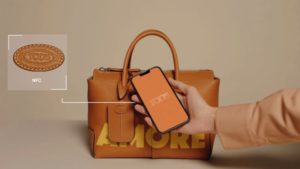CO₂ passes, social credit and a digital ID are brought together for each product
The plot of the dystopia.
The concept of “carbon passports,” proposed as a measure to combat climate change, has raised significant civil liberties concerns for some time. These passports are designed to record a person’s carbon footprint, including travel, energy consumption and lifestyle. They are intended to encourage environmentally conscious behavior, but pose a significant threat to privacy because they allow for constant monitoring of personal activities.

This invasion of privacy is not the only problem: the CO₂ pass could lead to discriminatory practices. Low-income people, who often have limited access to environmentally friendly alternatives, may feel unfairly disadvantaged. The system risks exacerbating social inequalities by disproportionately impacting those less financially able to make environmentally friendly choices.
Furthermore, carbon passports could restrict freedom of movement and personal autonomy. Restricting travel or certain activities based on carbon consumption could result in only the wealthy who can afford carbon offsets or sustainable options retaining their freedom. This scenario paints a disturbing picture of environmental stewardship only available to those with the financial means.
Another concern is the centralization of power in the hands of the entities that control carbon data. This centralization could result in tools intended for climate control becoming repressive surveillance and control tools. The balance between addressing environmental concerns and preserving civil liberties is delicate and crucial.
In the context of the carbons passports, a new idea is also being pushed forward, namely linking a type of digital ID to all products. This will facilitate the introduction of carbon credits.

The European Union is going very far with its plans to introduce digital IDs (in this case Digital Product Passports, DDPs) across all sectors. The DDPs primarily concern clothing, accessories and electronics.
Brands are now starting to work on integrating technologies that the European Commission says are necessary for the well-being of citizens, such as: achieving “sustainability goals” – the so-called “Green Deal”, carbon emissions, all these things – and then there is access to services and contactless payments.
Critics, however, argue that it is just another way to abuse consumers by collecting more of their data. Opponents’ fears appear to be based on solid facts, as some of the data collected by the EU’s proposed system will profile people based on their behavior, preferences and even the value of their resale profile.
The deadline given is 2026 – that’s how quickly brand manufacturers would have to incorporate digital passports into their products.
No resistance from brand manufacturers is to be expected. They are reportedly working hard to meet the deadline set by the European Commission for “real-world use of digital identities.”
The fashion industry will have to tell the EU – no longer voluntarily – how it makes its items, how it organizes its supply chains and what materials it uses.
However, brands should not be expected to use the technology just to make the EU feel good. “Brands currently testing the technology are looking for ways to collect customer data and provide benefits beyond the purchase,” writes Vogue Business.
Balenciaga, RealReal and Boss are already trying to go a step further than just linking physical objects to digital identity – as is the case with QR and NFC – and achieve the EU’s goals, as the article mentions.
And unlike the “old technology” that was primarily used to facilitate and protect transactions, manufacturers and customers, Mojito CEO Raakhee Miller has an interesting take on the new method, called “physical first”: “It not only increases the value of the product,” says Miller, “but it also deepens consumer engagement.”
How deeply does the EU – and the brands that follow its dictates – want to involve customers beyond spending money on a product they buy? This is where something comes into play that is essentially data collection and analysis, even if it is explained with fancy (and unsurprisingly equally meaningless) terms like “phygital goods” and “metaverse approach”.
But the proof is in their words, so to speak: it’s about anchoring services and use cases more closely to customer needs. And to know what these needs are, you first have to know the customer better. In other words, it goes beyond what customers today like to share with multinational corporations.
Can’t we all just buy what we want and move on? Not so fast, says the EU, and people like Laura Escure, vice president of partnerships at Vestiaire Collective, explain this as nothing less than what may seem to many like a fundamental questioning of customers’ cognitive abilities.
“The barriers around Web3 have not helped consumers think deeply about luxury,” Escure is quoted as saying.
And did you know that when you spend a lot of money on a luxury product, there’s a whole story behind it – in addition to the one on your bank statement? Romain Carrere, CEO of Aura Blockchain Consortium, wants you to think about this.
“We believe in a future where every customer feels connected to the story behind their products, and the DPP is the key to uncovering that story. It is not just a digital passport, but a journey of trust and empowerment for every consumer,” said Carrere.
But above all, it is a story. It is designed to empower yourself and those in positions of power, not the customer.
Back in the EU bureaucracy, the proposals for the digital product passport emerged in spring 2022, of course as a mechanism to improve the “sustainability” of products, and about a year later it was officially presented on the European Commission website as a way to share important information about a product.
The information would be made available to “all relevant economic actors,” according to a press release from May 2023. A lot is going on in this area as part of the proposal for a regulation on the ecodesign for sustainable products (ESPR).
The EU’s goals are to promote the so-called circular economy, material and energy efficiency, extending the lifespan of products and the way in which the waste from these products is handled.
But the bloc also announces some big ambitions here – such as creating new business opportunities – “based on improved data access”.
And the EU is no slouch when it comes to denigrating consumers while at the same time working to squeeze even more data out of them. The DDP system, the Commission said, will “help consumers make sustainable choices”.
And – for now – “enable authorities to verify compliance with legal obligations”.
yogaesoteric
March 23, 2024
